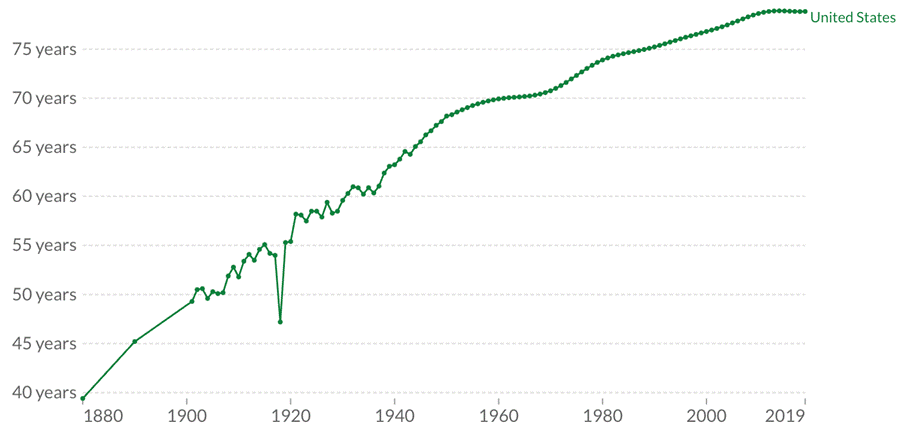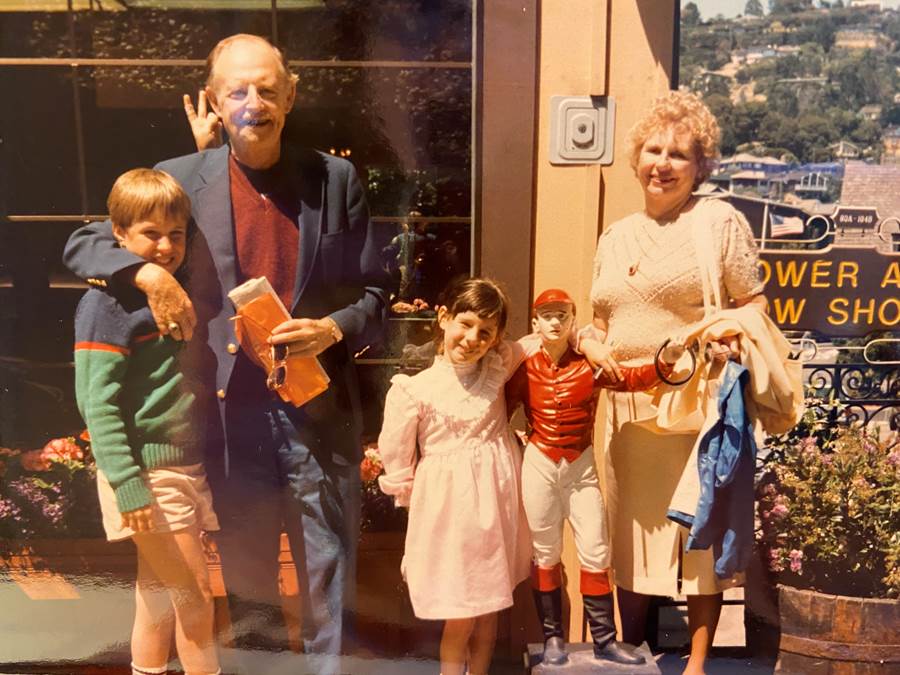What's Your Story?
Aug 25, 2021
In the United States in the late 1800s, life expectancy was only about 40 years, but it was rapidly increasing. It reached about 55 years in the mid-1910s and then dropped by about a decade for a year before resuming on its previous upward trajectory. The blip was the Spanish Flu.
As Yogi Berra once said, it’s “déjà vu all over again.” Life expectancy has continued to increase in the 21st century, albeit at a slower pace than the prior century. However, in 2020, life expectancy dropped by about 18 months, with COVID-19 accounting for 1/3 of all deaths. For a host of reasons including anticipated advances in health and medicine, however, it is reasonable to assume what life expectancy will continue to increase on the other side of the pandemic, particularly for those with financial resources and a college education. Despite the current headlines, we live in the Age of Longevity.

A Need for a New Playbook
Increasing longevity is not necessarily a good thing on its own; coupled with good health and financial well-being, however, it can be enormously valuable. Who wouldn’t want an extra few years or decades of high-quality life?
But what do you do with these extra years?
There is no playbook for these new stages of life. Baby Boomers are trying to figure it out, but Gen X, Millennials, Gen Z and generations that follow will likely face the same challenges and opportunities. How do you thrive throughout an increasingly long life?
Retirement is an antiquated term. According to Webster’s, “retire” means “to withdraw.” There’s nothing in the research around healthy aging that suggests withdrawing is the best course. If anything, the research suggests the opposite. For example, people with an articulated purpose, particularly in regard to a cause greater than themselves, live longer and healthier lives. Those with purpose tend to have lower cholesterol, lower rates of obesity, mild cognitive impairment, and Alzheimer’s disease. That’s not a case for withdrawing. Rather than retreat, more of us ought to consider advancing.

Summers with my grandparents had a bigger impact than I realized – if only they’d provided better fashion advice
Writing Additional Chapters to Your Story
Rather than putting the pen down, let’s focus on writing new chapters to our story. This requires self-reflection. We are best to take a moment to take inventory of our lives to date. What is your story?
Connecting the dots can be easier looking back than in the moment. Invariably a key setback in our life is a blessing in disguise. A seemingly small, random decision may loom large over time.
I went through this exercise recently. I deconstructed my interest in healthy aging. I was on a collision course for a career and life in Silicon Valley. I grew up in the Bay Area, majored in electrical engineering in college, worked for high-tech start-ups and went to business school in the Valley. The logical path was obvious. But that’s not what happened.
A number of seemingly small events had an outsized impact on my story. My maternal grandparents lived on the opposite coast but housesat for a neighbor for a month during several summers. This afforded me the opportunity to spend time with my grandparents and get to know them as if we lived beside each other. I valued their friendship, and it also nurtured a curiosity about longer lives. Several years later, my 6th grade teacher, Marge Zellner, organized a buddy program with a local assisted living community. Melba Rowlands, my buddy, became a friend and surrogate grandmother and we visited regularly through middle school. At the time, it seemed like a stage, but it is important part of the plot for my story and future chapters.
My friend Chip Conley helps people in mid-life transitions. He started the Modern Elder Academy and hosts retreats and online workshops. The approach emphasizes self-reflection, interaction with others, and wisdom from the ages. He’s a prophet in a sense: he saw this need in his own life and is now sharing the tools he used to help write the next chapter of his journey. The next venture for Chip is creating regenerative communities where people can live beside one another and encourage this next chapter of living. The first location is in Sante Fe, New Mexico. A regenerative community is the antithesis of a retirement community.

The first Modern Elder Academy in the U.S. will be in Santa Fe, New Mexico
The Role of Place
Chip is onto something. Creating a playbook for a longer life is a challenge, but it is even harder if you must do it alone. Community – being a part of other people’s lives, not just their social networks – creates a social fabric that supports everyone and allows the best ideas (wisdom) to be shared.
As this blog has argued and highlighted countless times, place matters more than many people realize. Planning for place should be given as much attention as living a healthy lifestyle and saving money for a longer life. It matters.
The right place at the right time doesn’t just help you write your next chapter. It weaves your story with the story of others. Marc Freedman of Encore.org believes the only way to truly live forever is to become enmeshed in the stories of those of younger generations. Now that’s some kind of longevity.
Ryan is an expert speaker in the aging industry. Want to have Ryan speak at your event? Find out more.
If you like this blog, you can subscribe to Ryan’s mailing list to be contacted with links to his latest blogs and other relevant content.
Take the Right Place, Right Time Assessment
Are you in the right place for right now? This quick assessment will reveal opportunities to improve your life.
Subscribe to The Blog
We hate SPAM. We will never sell your information, for any reason.

